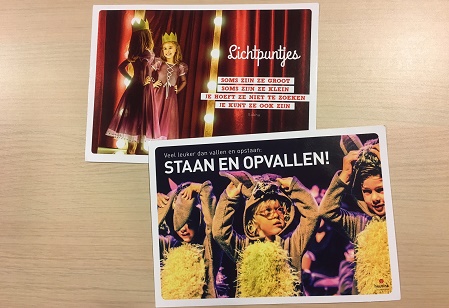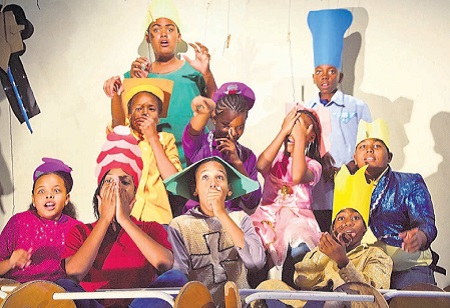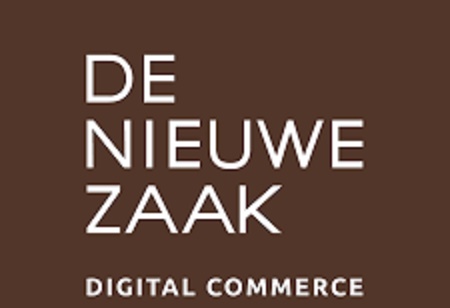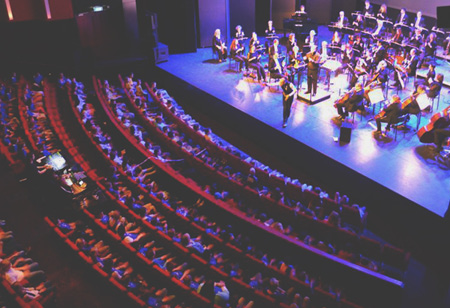‘Children dare to do more”
From: Amigoe, newspaper in Curaçao.
Most people know Drazans Youth Theatre School for its enchanting shows such as Beauty and the Beast, Charlie and the Chocolate Factory and Peter Pan. What not many people know is that Drazans also offers theatre lessons to children in disadvantaged areas. Children who do not come into contact with theatre as a matter of course, get the opportunity to have lessons to get acquainted with theatre, immerse themselves in the discipline and to further develop their theatrical talents. Since this school year, the Heutink Foundation from the Netherlands has also supported lessons in these regions, which means an extra 400 additional children can be reached.
For the last two school years, Drazans has given weekly theatre and dance lessons to five schools in the regions of Koraal Specht, Seru Fortuna, Brievengat and Buena Vista. Since this school year, four schools have been added, including Cher Asile and Kustbatterij. During the cultural-artistic training (CAV) lessons, students from groups 6 to 8 participate in drama and dance lessons to build their self-confidence, social skills and creativity. “The children learn to work together, but they also learn to commit to something”, reveals Inet Arts, who is responsible for the artistic and business management of Drazans together with Maaike Kempers. “They learn texts and master a role”.
The team of teachers are enthusiastic. “These are people who give inspired lessons and also have a heart for it”, says Maaike Kempers. “You want to create fantastic performances, but on the other hand you have to deal with children who grow up under difficult circumstances. As a result, making the performance first-class sometimes falls into second place. To start the lesson, you first have to create the conditions”. According to Kempers, the teachers at all the schools are warmly welcomed by the children “The aunt of drama is here, they shout with excitement. Drama lessons break the mundane pattern of school”.
No lesson looks the same. Sometimes the teachers must first sweep the floor before they can begin the lesson. Arts: “In some schools, keeping the gym clean is not the first priority if a window is smashed every week. Occasionally we have to roll around on the floor in the lesson. The children never roll over the floor when it is dirty – I sweep it up myself”. The Drazans team comes to school once a week and there is always a teacher present in the classroom. “The teachers know the children best and know if something has happened in the class shortly before which might effect them”, says Kempers. “Furthermore, primary school classes sometimes have 32 children. These are large groups. If the teacher is in charge of keeping the kids in order, you as a guest teacher can concentrate on acting and dancing”, explains Arts.
Totolika
The work in the regions started small. Drazans set up small courses of ten lessons, which were sponsored by the Round Table, the Rotary Club and the Prince Bernhard Cultural Fund Caribbean. In 2016, the parents association Totolika approached Drazans to give theatre lessons. Ten pupils with intellectual and/or physical disabilities from Kolegio Sur Herman Joseph school, a school for very difficult children, received weekly lessons at Drazans. The teachers allowed the youth theatre school to select the ten students themselves. “It turned out that we had chosen the children with the most serious behavioural problems. At the beginning we received phone calls from the school every week asking “how is it going?”. We were always able to answer that the children were really enjoying the lessons. We never experienced anything extreme with them. The children could express themselves, so the rest fell into place”, says Arts.
In order to give more children from Kolegio Sur Herman Joseph school the opportunity to develop in the field of drama and dance, it was decided that a teacher would be sent to the school itself. Since school year 2015-2016, Drazans has received a subsidy from Reda Sosial which gives four primary schools a year of drama and dance lessons. “Finally we were able to make a long-term plan which would have an impact on the children and the schools”. According to Kempers, continuity is very important. “Teachers say that they can see the self-confidence in the children increasing during presentations for example. For some children, the speaking skills have really improved. Since starting the drama lessons, shy children have the courage to let themselves be heard during other lessons. They are also more able to share their opinion or raise their finger in the classroom. According to the teachers, the atmosphere in the classroom has also improved since the drama lessons began”.
Structural
Since this school year, the Heutink Foundation from the Netherlands has also supported lessons in the disadvantaged regions, which means an additional 400 children are being reached. The family business Heutink is the market leader for the supply of school material to primary schools in the Netherlands. “The company supports various social projects at home and abroad”, says Kempers. The director of Heutink was once at Radulphus College for an exchange project and I have kept in touch with her ever since. She contributed privately to ensure underprivileged children could attend theatre lessons. Last year she set up the Heutink Foundation to be able to contribute in a structural way to social projects, which also included ones in Curaçao. It is great that there are companies who believe in what you do and start a collaboration”. Children who are talented and motivated are given the opportunity to progress to regular lessons. This is how they try to create a safe, multicultural environment where children can grow and develop themselves. “Ultimately, we want balance in our groups. This is Curaçao: a mix of different cultures, religions and environments”, explains Kempers.





